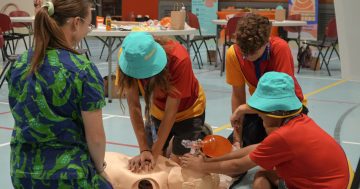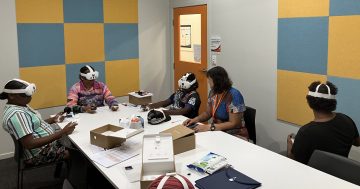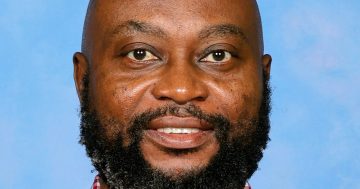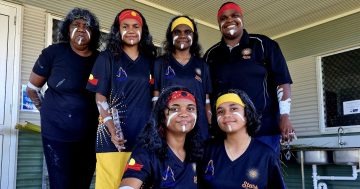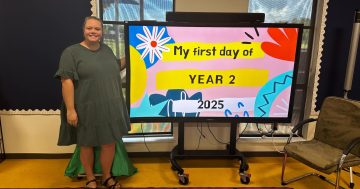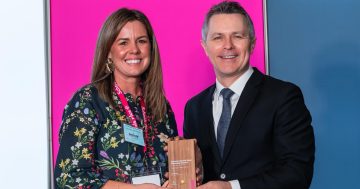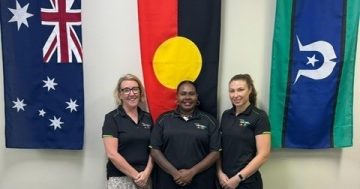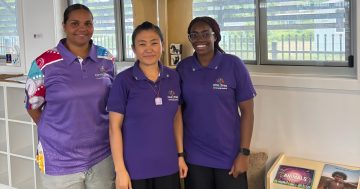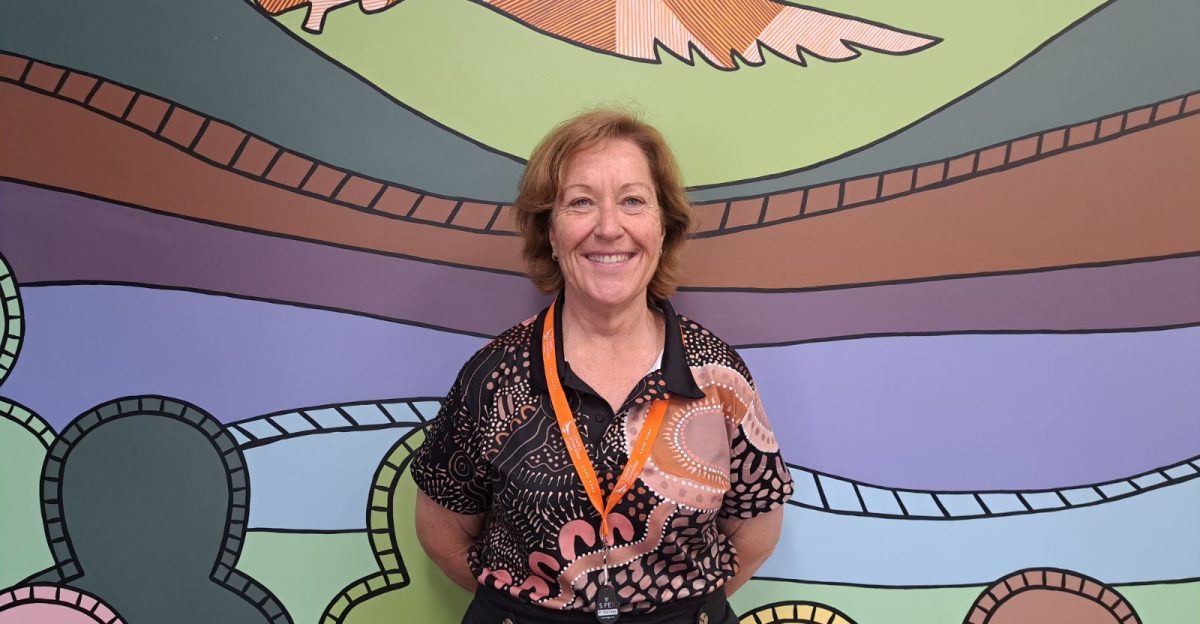
Kerry Clough has joined the CUC Cape York team as the student support and outreach coordinator for 2024. Photo: Supplied.
Just six months since its official opening, a Cooktown-based university centre is celebrating tremendous growth as it welcomes a new staff member to keep up with demand.
Country Universities Centre (CUC) Cape York is a dedicated study centre for remote students, providing them with reliable high-speed internet, modern technology and academic support.
CUC Cape York manager Jenni James said 59 students had registered for semester two and several were already completing their studies.
“Usage of the centre has exceeded our expectations, with usage regularly reaching eight students accessing the centre on any given day,” she said.
“We’re proud to have welcomed placement students from Cooktown Hospital, as well as local high school students, including those enrolled in distance education programs throughout the region.
“We’ve also got all of our university and TAFE students who appreciate the centre as a quiet, distraction-free environment.
“The coffee, snacks and air conditioning are also a welcome bonus for many of our students to keep their brains firing during long hours of study.”
In January 2024, the centre brought on Kerry Clough as the student support and outreach coordinator.
“Kerry’s role will strengthen our team to provide one-on-one academic support to students and manage the widening participation program currently being developed to encourage university participation by partnering with our local communities to codesign programs that address our unique challenges in supporting access to higher education,” Ms James said.
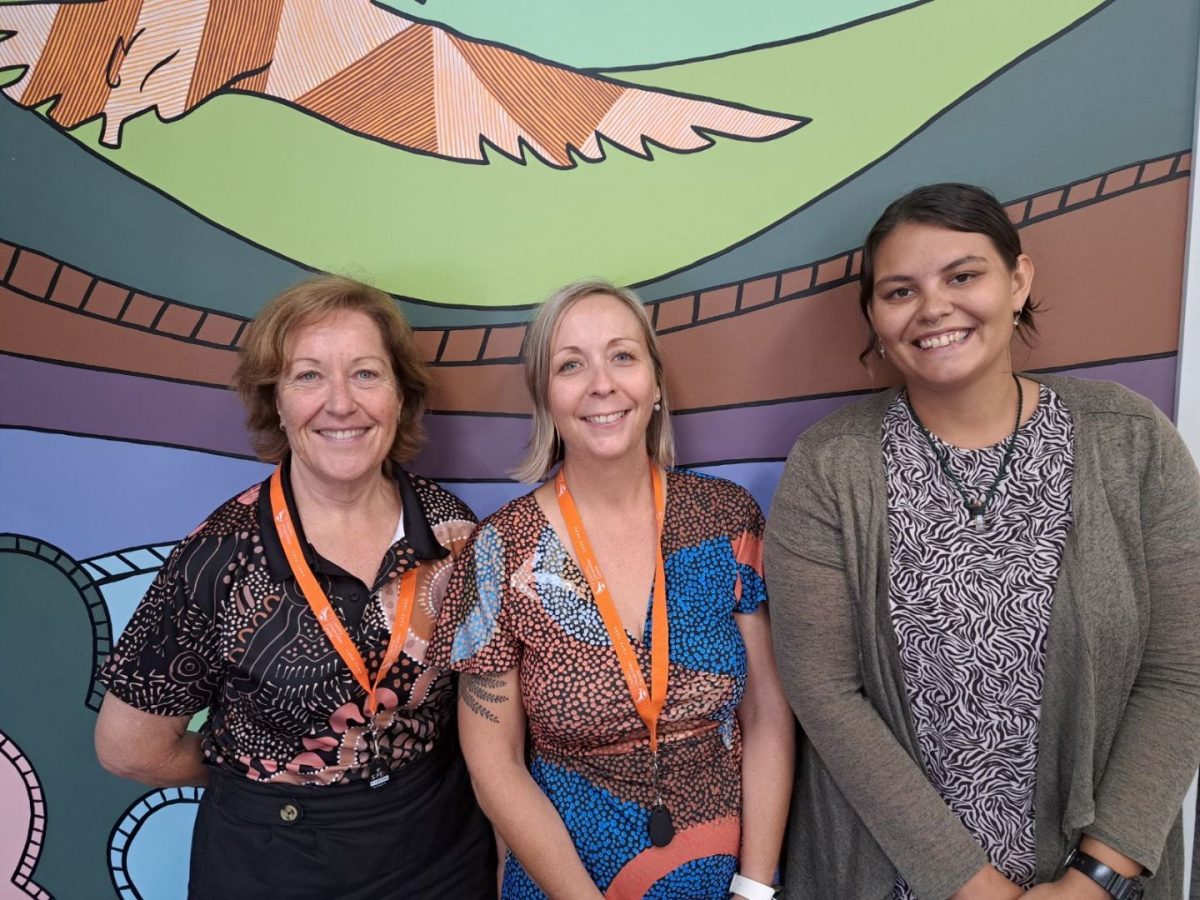
CUC Cape York team members Kerry Clough, Jenni James and Tiannie Otto are celebrating 59 students enrolling to study in the second semester of the Cooktown hub’s operation. Photo: Supplied.
Ms Clough arrives in the role with a wealth of knowledge and experience in education and remote communities.
“I’ve been involved in universities and education, and I really liked the concept,” Ms Clough said.
“Being from a regional area myself in Tasmania and raising my children down there, I knew what the barriers could be and so access to education is so important for me.”
Ms Clough added facilities like the CUC, which help students to overcome some of the barriers to education, were extremely important.
“A lot of the systems that we have in universities, or even just any learning institution, [are] set up for the average person who has access to computers, has reasonable literacy and numeracy skills, who come from an educational background and have family in the community that supports them,” Ms Clough said.
“It’s really not set up for people who struggle to have the most basic needs, so a lot of people have those barriers to overcome before they can even access education.
“CUC addresses a lot of those barriers, because people don’t necessarily have to leave their communities to get an education and they can keep that support network.
“When they come into the study hub, they’ve got access to good computers, good internet speed and academic support.”
Ms Clough said in her role, she could support students in many different ways.
“I can provide academic learning support and also student service type support, like helping with their wellbeing,” she said.
“It could also be around advocacy or accessing different processes within the university or other institution process.
“They wouldn’t ordinarily get these kinds of support if they were working from home, and it can be quite isolating just using the laptop at home.”
She said it was also important for her to reach students who had not considered higher education as a viable option.
“The outreach side of it is to try and build some pathways and connections with people who wouldn’t normally access higher education,” Ms Clough said.
“Education can be life-changing – it gives people opportunities and it gives them choices in life.
“I think if it’s a choice for them, that’s great, but if they haven’t got a choice, that’s where we’ve really let these people down.
“If that’s what they want to do, it also gives an opportunity to leave the community, build up those skills and hopefully return to their community with those skills.”


